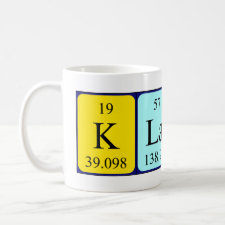
Authors: Yu C, Mosbach K
Article Title: Molecular imprinting utilizing an amide functional group for hydrogen bonding leading to highly efficient polymers.
Publication date: 1997
Journal: Journal of Organic Chemistry
Volume: 62
Issue: (12)
Page numbers: 4057-4064.
DOI: 10.1021/jo961784v
Abstract: In this paper we report the synthesis of molecularly imprinted polymers (MIPs) using an amide as the hydrogen-bonding functional group. All the amide MIPs made in this investigation exhibited good enantiomeric recognition of the imprinted species when evaluated by high-performance liquid chromatography (HPLC). Most of the amide MIPs were synthesized in a polar organic solvent (acetonitrile). By contrast, when a carboxyl group was used as the hydrogen-bonding functional group, MIPs made in acetonitrile exhibited only very weak recognition and in some cases no recognition at all with the print molecules tested. The amide MIPs also showed much improved load capacity. This suggests that for a number of cases the protocol described could be employed to reduce background, nonspecific binding compared to polymers using carboxyl groups, by avoiding an excess of negatively charged functionalities. It was shown that the tailing and peak asymmetry problems often associated with the use of MIPs in HPLC could be overcome by using linear gradient elution. The specificities of amide MIPs in terms of size, shape, and hydrogen-bonding selectivity were also investigated in detail. Finally, amide MIPs also showed good enantiomeric recognition in aqueous media



Join the Society for Molecular Imprinting

New items RSS feed
Sign-up for e-mail updates:
Choose between receiving an occasional newsletter or more frequent e-mail alerts.
Click here to go to the sign-up page.
Is your name elemental or peptidic? Enter your name and find out by clicking either of the buttons below!
Other products you may like:
 MIPdatabase
MIPdatabase









